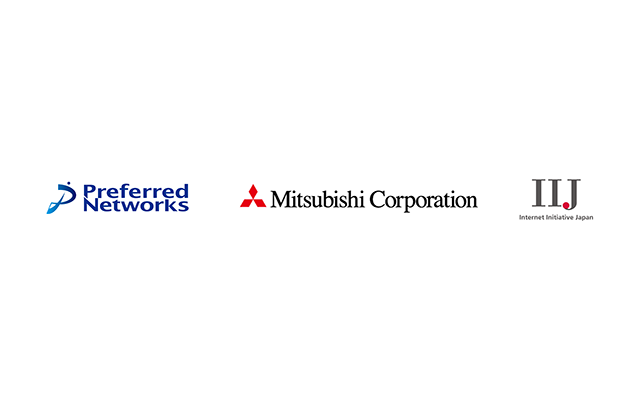News
SBI Holdings and PFN Agree to Form Capital and Business Alliance for Next-Generation AI Semiconductors
2024.08.27
TOKYO – August 27, 2024 – SBI Holdings, a Japanese financial services group, and Preferred Networks, Inc., a Japanese technology company developing AI solutions and products including semiconductors, have reached an agreement to form a capital and business alliance to develop and productize PFN’s next-generation AI semiconductors.
Under the agreement, SBI Group and PFN will discuss their plans for: (1) Joint research and development of PFN’s next-generation AI semiconductors for their productization; (2) collaboration in assembly and testing process in manufacturing the next-generation AI semiconductors developed by PFN and (3) SBI Group’s support for PFN’s financing. The scope of the business alliance may expand depending on SBI Group and PFN’s subsequent agreement.
Through the alliance with PFN, SBI Group expects it will be able to contribute to the development of the Japanese semiconductor industry by supporting PFN’s next-generation AI semiconductor business throughout the country. SBI Group has previously established JSMC Holdings, a semiconductor company, to advance regional revitalization through semiconductor business. The Group has been expanding its semiconductor business through the business alliance with Restar Corporation, a major Japanese semiconductor trading house, as well as its recent selection of a construction site in Ohira Village, Miyagi Prefecture.
Through the manufacturing of PFN’s next-generation AI semiconductors, SBI Group also expects to gain its recognition in the manufacturing sector, and to build a semiconductor ecosystem that brings about positive economic effect in the Miyagi Prefecture region. SBI Group believes that the alliance will significantly boost the Group’s added value and establish itself as a role model for regional revitalization through semiconductor business. To achieve these visions, SBI Group plans to invest a maximum of 10 billion yen in PFN through SBI Holdings through a third-party allocation of new shares by the end of September 2024.
SBI Group and PFN’s agreement was made in response to the rapid demand growth and the consequent shortage of AI semiconductors around the globe due to the advancement of generative AI. Energy consumption from AI development and usage is expected to grow continuously, raising an increasing need for high-performing, low-power AI semiconductors. The Japanese government has supported domestic AI semiconductor development through the 5G Promotion Act and the 2023 Strategy for Semiconductors and the Digital Industry, putting mid- to long-term development of Japan’s digital infrastructure as a key national strategy. Importance of AI semiconductors is widely recognized today as they also play a central role in cloud programs, which the government has designated as Specific Critical Objects in the Economic Security Promotion Act.
Founded in 2014, PFN is a startup that develops and provides hardware and software in a vertically integrated manner for putting AI to practically use. The company designs AI semiconductors, develops software for them, builds supercomputers using the AI semiconductors, builds generative AI foundation models, and develops applications using such technologies, all in-house. PFN has been providing the benefits of its AI semiconductor-powered computing infrastructure to external users from 2023. PFN also has a track record in implementing advanced AI technologies for clients across industries, such as an automated operation system for a large-scale plant and a cloud-based atomistic simulator for materials discovery. The company has designed and developed the MN-Core™ series of AI semiconductors as well as development of software including AI algorithms. PFN’s supercomputer equipped with the first-generation MN-Core chips has topped the Green500 ranking of the world’s most energy-efficient supercomputers three times in 2020 and 2021.



